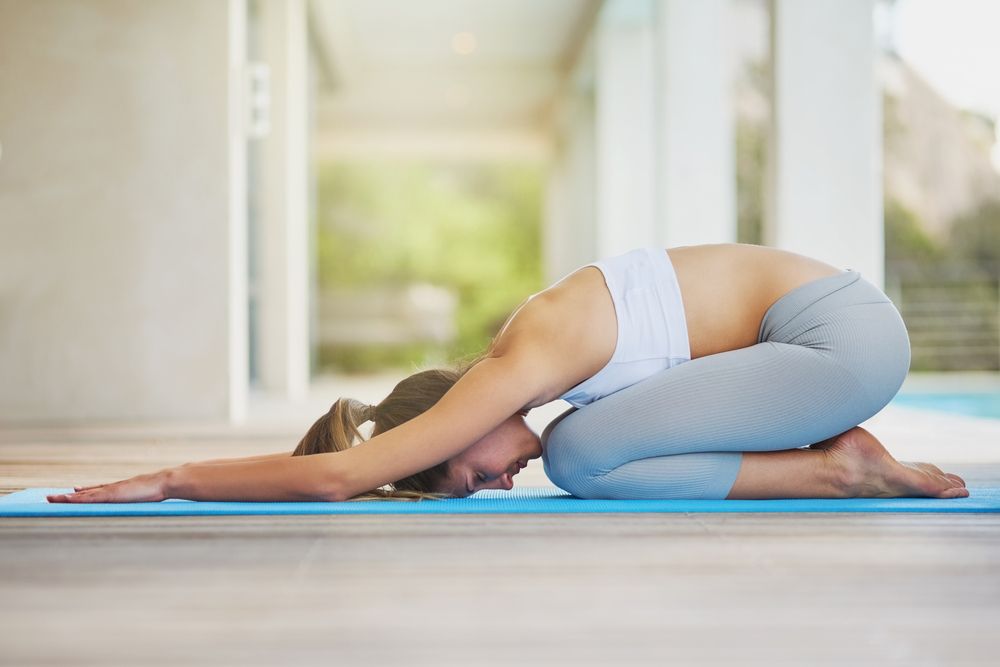Progressive muscle relaxation (PMR) is a simple yet transformative technique that involves systematically tensing and relaxing various muscle groups throughout the body. This method helps you release physical tension, reduce stress, and promote a deep sense of relaxation.
Developed by Dr. Edmund Jacobson in the 1930s, PMR has stood the test of time as an effective tool for improving mental and physical well-being. No matter if you are struggling with chronic stress, tension-related aches, or simply want to feel more at ease, PMR offers a range of benefits that can positively impact your life.
How Progressive Muscle Relaxation Works
PMR works by creating awareness of the difference between tension and relaxation in the body. As you move through each muscle group, you intentionally tighten the muscles for a few seconds and then release the tension, with a focus on the sensation of relaxation.
This process not only helps the body let go of physical stress but also promotes a calmer mental state by shifting focus away from anxious thoughts and engaging the relaxation response.
Reduces Physical Tension
One of the most immediate benefits of PMR is the release of physical tension. Many people hold stress in their muscles, often without realizing it. Common areas of tension include the neck, shoulders, jaw, and lower back.
By practicing PMR, you can actively reduce this tightness. This will lead to better posture, reduced discomfort, and overall physical ease. This benefit is particularly helpful for those who experience tension headaches or stress-induced muscle pain.
Lowers Stress and Anxiety
PMR is a proven method for reducing stress and anxiety. With a focus on the process of tensing and relaxing your muscles, you engage your parasympathetic nervous system – which helps counteract the body’s fight-or-flight response. This physiological shift promotes a sense of calm and reduces the symptoms of anxiety, such as a racing heart, shallow breathing, and nervous tension. Practicing PMR regularly can provide long-term stress relief and improve your resilience in high-pressure situations.
Improves Sleep Quality
Insomnia and poor sleep quality are often linked to stress and mental overactivity. PMR helps prepare your body and mind for rest by calming your nervous system and releasing built-up tension.
Incorporating PMR into your nighttime routine can make it easier to fall asleep and stay asleep. Many people find that the technique also improves the overall quality of their sleep. This can lead to greater energy and alertness during the day.
Enhances Emotional Well-Being
Practicing PMR can improve your emotional health by fostering a greater sense of control over your stress levels. As you become more attuned to your body’s physical responses to stress, you’ll also develop better coping skills for managing emotional challenges.
PMR encourages mindfulness and self-awareness. It helps you stay grounded and centered even during difficult times.
Boosts Focus and Concentration
Mental clarity and focus can often suffer when you’re overwhelmed or stressed. PMR helps clear mental clutter by calming your mind and improving your ability to concentrate. It allows your brain to function more effectively by reducing stress and tension. This will enhance productivity and decision-making.
Supports Cardiovascular Health
Chronic stress can take a toll on your heart and overall cardiovascular health. PMR helps lower blood pressure and reduce heart rate by activating the relaxation response. Over time, these effects can contribute to better heart health and lower your risk of stress-related conditions like hypertension and heart disease.
Eases Chronic Pain
For those dealing with chronic pain conditions, PMR can bring significant relief. It reduces the intensity of pain signals and helps you manage discomfort more effectively by teaching your body to relax and let go of tension.
It’s particularly beneficial for conditions like fibromyalgia, tension headaches, and back pain. Regular practice can improve your pain tolerance and enhance your quality of life.
Promotes Mind-Body Awareness
PMR encourages a deeper connection between your mind and body. With a focus on specific muscle groups and the sensations of tension and relaxation, you develop a greater awareness of your body’s needs. This heightened awareness can help you identify and address stress-related physical symptoms before they become more severe.
Supports Mental Health Management
PMR is often recommended as part of treatment plans for mental health conditions like anxiety disorders, depression, and post-traumatic stress disorder (PTSD). The technique’s calming effects help regulate mood, reduce intrusive thoughts, and create a sense of safety and control. For those in therapy, PMR can complement other treatments and provide additional tools for managing symptoms.
Enhances Athletic Recovery
Athletes and fitness enthusiasts can benefit from PMR as a recovery tool. The technique helps relax muscles after intense physical activity. It helps reduce soreness and stiffness. Promoting circulation and easing tension, PMR supports faster recovery and better performance in future workouts.
How to Get Started with Progressive Muscle Relaxation
Set Aside Time for Practice
Dedicate 10 to 20 minutes each day to practice PMR. Choose a time when you won’t be interrupted, such as before bed or during a quiet moment in your day.
Create a Relaxing Environment
Find a comfortable space where you can sit or lie down. Dim the lights, eliminate distractions, and consider using calming music or aromatherapy to enhance relaxation.
Follow a Guided PMR Session
If you’re new to PMR, a guided session can help you learn the proper technique. Many apps and online resources offer audio recordings that walk you through each step.
Be Patient with Yourself
It’s normal to feel restless or distracted when starting PMR. With regular practice, the process will become more natural, and you’ll notice greater benefits over time.
Incorporating PMR into Your Routine
Morning Practice for Stress Management
Begin your day with a short PMR session to set a calm and focused tone. Starting your morning this way can help you approach daily challenges with greater ease.
Midday Break for Tension Relief
Use PMR as a midday break to release tension and recharge. Even a brief session can help reset your energy levels and improve your focus.
Evening Routine for Better Sleep
Incorporate PMR into your nighttime routine to prepare your body and mind for rest. Regular practice before bed can improve sleep quality and reduce nighttime restlessness.
Unlock the Benefits of PMR
Progressive muscle relaxation is a versatile and accessible technique that comes with numerous benefits for both your mind and body. From reducing stress and improving sleep to easing pain and enhancing mental clarity, PMR is a powerful tool for promoting overall well-being.
Making it a regular part of your routine means you can experience lasting improvements in your physical and emotional health. Start practicing today to discover the transformative effects of this simple yet effective relaxation method.
OASIS Mind & Body celebrates the transformative power of progressive muscle relaxation to reduce tension and enhance overall well-being. This proven method aligns with our commitment to offering whole-body mental health care.
Our serene, private office spaces, complete with amenities like a Meditation/Reading Room and a Himalayan Salt Room, bring the perfect environment to explore this practice. We take the time to personalize your experience and make sure that you leave each session feeling more connected to your mind and body.
If you’re looking to integrate progressive muscle relaxation into your routine, OASIS is here to provide expert mental health services in an atmosphere of luxury and tranquility. Book now.







